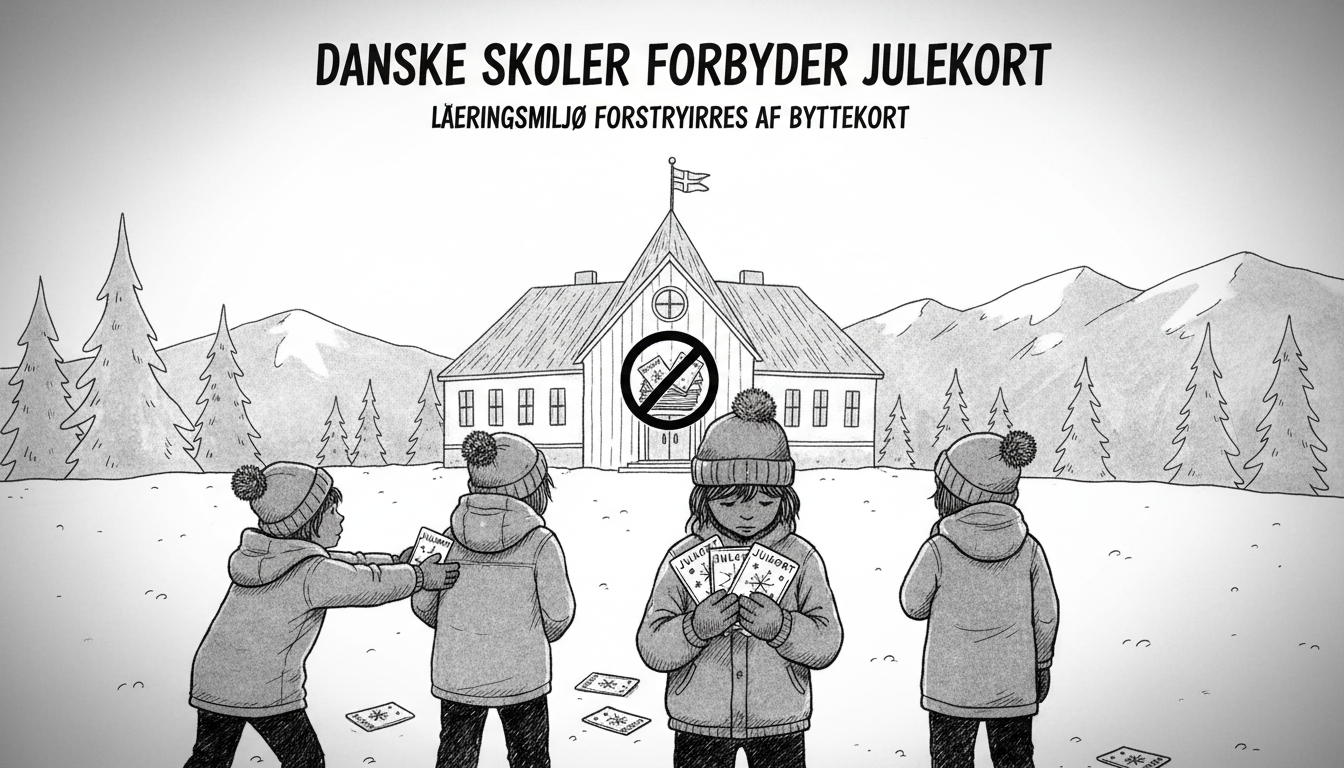A Danish elementary school has prohibited students from bringing popular Christmas trading cards to school following repeated conflicts and peer pressure incidents. Klostermarksskolen in Roskilde implemented the ban after children began stealing cards from classmates and pressuring each other in unfair trades.
The trading cards are connected to a television Christmas calendar program and available through supermarket purchases. Parents must spend at least 100 Danish kroner in selected stores to receive a packet containing three random cards. Completing the full collection of 48 cards requires shopping for approximately 1,600 kroner, plus the cost of the album itself.
School principal Kasper Broeng explained the decision. 'When cards begin to dominate this much, they remove focus from what elementary school exists to provide,' he said. 'We've seen children pressuring each other to trade coveted cards, and in worst cases, stealing cards from classmates' bags.'
The problem extends beyond student conflicts. Broeng noted an 'unspoken pressure' on parents to spend money at specific supermarkets to acquire the cards. 'It's completely absurd that your parents' preferred grocery store should create different status levels in school,' he stated.
This marks the second consecutive year Danish schools have faced issues with promotional trading cards. Last year, multiple schools restricted cards from a different Christmas program after similar problems emerged. Søndre SFO in Køge plans to reintroduce restrictions this year, requiring children to keep cards in their bags during school hours.
The national organization for school boards and parents acknowledges the social hierarchy these cards create. 'Not all children can afford to shop where the cards are distributed,' said national chairperson Regitze Spenner Ishøy. 'Not everyone receives equal numbers of cards. This creates a pecking order and hierarchy based on who has the right cards.'
Retailer Salling Group, which distributes the cards, declined responsibility for how children trade them. 'We prefer not to interfere in how children exchange their cards,' the company stated. The grocery chain emphasized that card collection remains optional and announced plans to donate a 'substantial amount' to children's charities.
The television network behind the Christmas program acknowledged schools' authority to manage disruptions. 'If this creates discord and unrest during school time, we naturally trust and understand that individual schools will handle it,' said marketing director Frederik Grønlund Scholten.
Education experts note this situation reflects broader concerns about commercial influences in schools. The trading card phenomenon demonstrates how marketing campaigns can create unintended social dynamics among children. Schools face increasing challenges balancing commercial holiday traditions with their educational missions.
Danish schools continue grappling with how to handle promotional items that create social divisions. The trading card ban represents one approach to maintaining equal learning environments during commercial holiday seasons. Other schools may follow similar paths as holiday marketing campaigns increasingly target children through school-related social dynamics.

